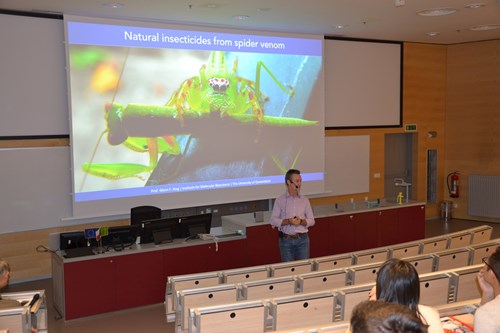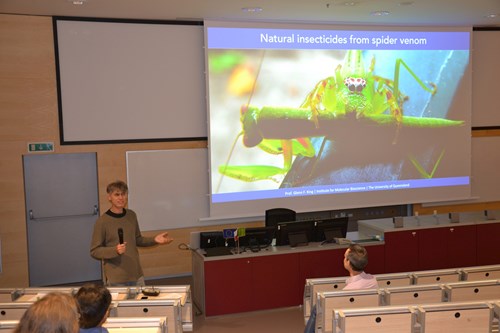About the lecture
Insect pests have traditionally been controlled with chemical insecticides. However, the evolution of insecticide resistance and the revocation of key insecticides due to their adverse environmental impacts have created an unmet demand for a new generation of eco-friendly insect control methods.
Spiders are the best insect predators on the planet, and they possess extremely complex venoms that have been fine-tuned by more than 400 million years of evolution. These venoms are replete with peptides that rapidly incapacitate insect prey by targeting ion channels and receptors in the insect nervous system.
By screening a diverse panel of spider venoms we isolated several families of peptide toxins that selectively kill insects of importance to agriculture and public health, but are harmless to bees and vertebrates.
All of these toxins contain a signature structural motif known as an inhibitor cystine knot that provides them with high levels of chemical, thermal and biological stability. Most of these spider-venom peptides target presynaptic ion channels using a variety of different mechanisms.
I will describe the structure and mode of action of these peptides, and demonstrate that they can be employed as bioinsecticides via foliar sprays or by incorporation of peptide-toxin genes into crops or entomopathogens.



